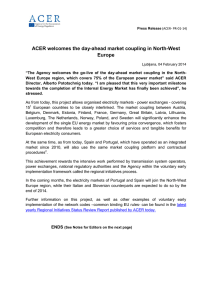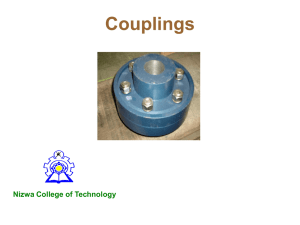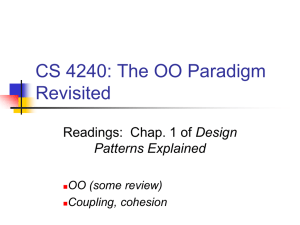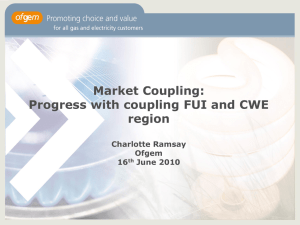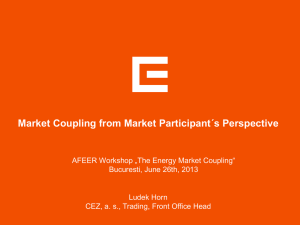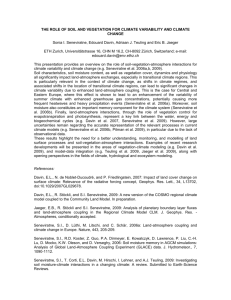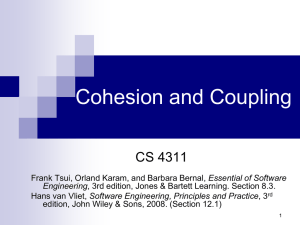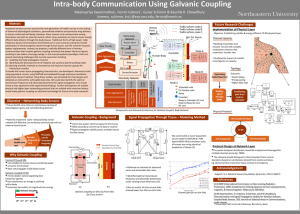godine
advertisement
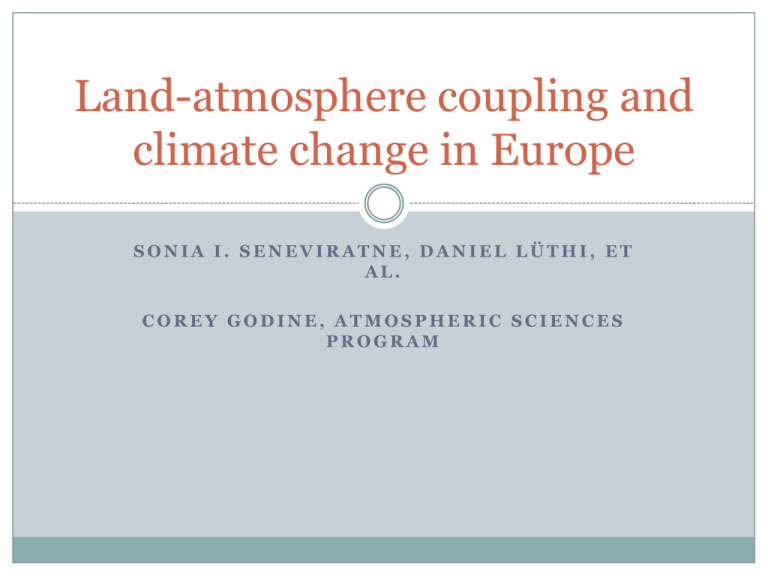
Land-atmosphere coupling and climate change in Europe SONIA I. SENEVIRATNE, DANIEL LÜTHI, ET AL. COREY GODINE, ATMOSPHERIC SCIENCES PROGRAM What is “coupling?” Studies use two different hypotheses: Surface processes & future changes in radiation budget Future summertime atmospheric circulation modification Models do not take into account increasing greenhouse gases likely in the future Coupling = Atmospheric circulations (temperature or precipitation) + Soil moisture What is “coupling?” Increased atmospheric greenhouse gases change coupling dynamics Projected large fluxes in climatic extremes Humans can’t cope with large variability Extreme Summers in Europe HOT 2003 heatwave and drought COLD 2002 and 2005 torrential flooding The Big Ideas Goal: Discover role of land-atmosphere coupling in yearly summer temperature & precipitation extremes in Europe Researchers used several different models Not a lot of math Great Scot! Models and Equations Four 30-year-long experiments (RCM) Two recent (CTL, CTLuncoupled), 1960-1989 Two future (SCEN, SCENuncoupled), 2070-2099 Uncoupled models remove surface influences Equations: Models and Equations Future regional model greenhouse gas scenario based on IPCC specifications 3 numerical global models Global scenarios from present and future taken from 12 different IPCC global models Analysis How does land-atmosphere coupling affect the future temperature/precipitation variability in Europe in the future? Data from each individual model Differences between each model External forcings only (ie, atmospheric circulations) External forcings + Land-atmosphere coupling Why such a large change in T? Large difference between GLACE (a present-climate model) and the model runs on previous page CTL SCEN Why such a large change in T? The percentage of variation in summer temperature due to land-atmosphere coupling Why such a large change in T? Models show land-atmosphere coupling is correlated with a higher temperature change SCEN predicts that land-atmosphere coupling will shift to east and north Consistent with other recent model runs (IPCC, PRUDENCE) Evapotranspiration and Temperature Negative correlation = strong soil control over evapotranspiration (ie, coupling) Positive correlation = strong atmospheric control over evapotranspiration (ie, uncoupled) What about precipitation? Models are less certain about the relationship between land-atmosphere coupling and precipitation variability Conclusion Land-atmosphere coupling is strongly affected by an increase in greenhouse gases Northward shift of European climate zones Strong positive correlation between land-atmosphere coupling and temperature variability Strong negative correlation between coupling and evapotranspiration Weak correlation between land-atmosphere coupling and precipitation variability Opinions Temperature correlations convincing Run CTL and SCEN against more coupling models to confirm results Would like more information about relationship between evapotranspiration and coupling Needs more development in precipitation correlation Teleconnection problems! Many other process could contribute to projected shift in surface temperatures Would have liked more accurate/effective global models to supplement regional models Questions? Thank you!

